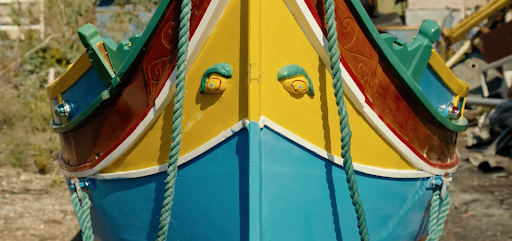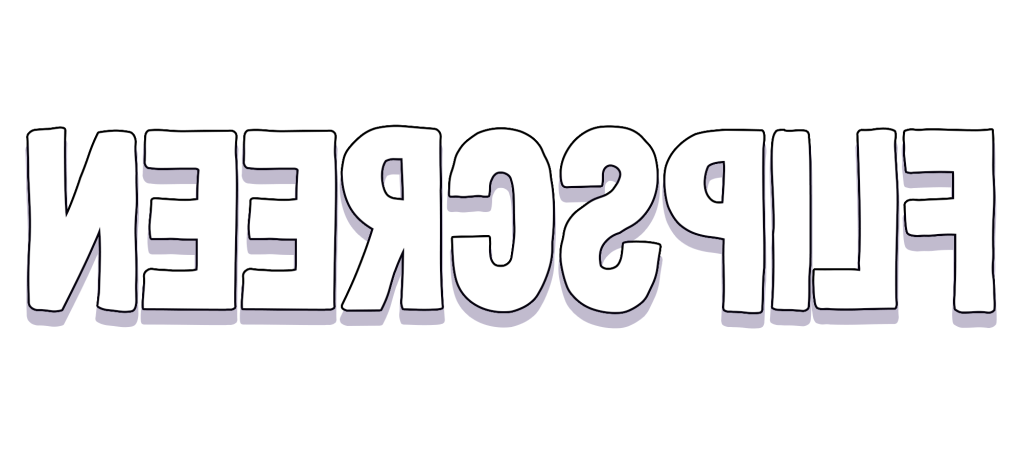Love what you do and you’ll never work a day in your life.
This is perhaps the most pernicious axiom of our late-capitalist hellscape and Luzzu is one stitch among millions in the vast, rotten tapestry it’s woven. These threads are hand-made in Malta, where the traditional methods of a generations-spanning community of fishermen are being slowly ground out by industrialized mass-capture, environmental degradation, and EU buyouts. Our hero, the cologne-ad-handsome Jesmark (Jesmark Scicluna), is thus faced with a simple decision: with the decreasing returns of a dying industry and the increasing costs of his sick infant son Aiden (Timur Ali), it’s sell out for a “real job” or break the law—a fresh swordfish caught illegally out of season can be incredibly lucrative, after all.

Through this set-up, the viewer receives the foundation of simple dichotomies the film is built on: the luzzu (a colorful wooden fishing boat) bathed in light and the commercial trawler in darkness; the corruption of money and the good ethics of poverty; the horizon of overhead cranes and massive shipping vessels facing a dusty, stacked old city. What these images boil down to is well-trodden ground—the transitional period between traditional and industrialized production—and where Luzzu falls short is its hesitance to push the boundaries beyond this simple conflict. As Luzzu steps into the footprints of other labor-based social issue dramas, you can barely tell its imprint from its predecessors’.
The film’s crowning moments exist in sequences involving the city’s other fishermen, endowing folk fishing methods with a sacred, mythic quality. In one such sequence, a priest (Reece Vella) floats amongst luzzijiet at port and blesses them with holy water, the owners of each little boat crossing themselves earnestly. In another, a friend of Jesmark’s (David Scicluna) helps him to stamp Aiden’s footprint in yellow paint on the newly-repaired boat, much like Jesmark’s own father did for him. Sequences like this express the dignity and soulfulness of such work by their intense physicality: the luzzu has a living body (“wood,” one fisherman says, “is a living thing”), uttering its cries through the scraping and prying of repairs, the cranking of lines, and the whoosh of nets tossed into the sea. Each luzzu is built with a pair of piercing eyes at its bow, often captured staring directly into the camera as if to express its soul to the viewer in moments of pure naval hierophany.

The sacred quality of the luzzu and its associated line-and net-fishing practices, however, is not enough to save it (warning: light spoilers ahead): Jesmark swallows his pride and takes a deal, reluctantly abandoning his emotional attachments and moral convictions in an act of pure (and very reasonable) financial desperation. As he departs from the simple but strained life as he knows it, he realizes nevertheless that he can find fulfillment in parenthood: the profits of his bargain go far in caring for his son. Luzzu presents this moment as redemptive; the struggle for mere existence behind him, Jesmark is able to securely provide for his family, spending his free time telling stories to Aiden and—as the last shot of the film implies—fishing for pleasure.
With its sort-of-happy ending, Luzzu rounds out the soul-crushing personal conflict of the late-capitalist age with a promise of alternate joys: it seems to affirm that if you can’t live fulfilled, at least you can treasure that which exists outside the nine-to-five. We can’t blame Jesmark for the desperation that leads to his self-relinquishment to the system, but in the end that very system is upheld; one more small-scale fisherman has thrown in the towel to make room for seabed-destroying trawling nets and—this is crucial—is happy in the end anyway. Luzzu, therefore, contains immense tragedy: not the tragedy of selling your soul, but the unintended, after-the-fact tragedy of a blissful existence in the vacuum of capitalist destruction.
Dir: Alex Camilleri
Prod: Josephine Camilleri, Michael Camilleri, Pierre Ellul
Cast: Jesmark Scicluna, Michela Farrugia, David Scicluna, Timur Ali
Release Date: October 15, 2021 (United States)
Available: Theatrical release
Trailer:


Leave a comment